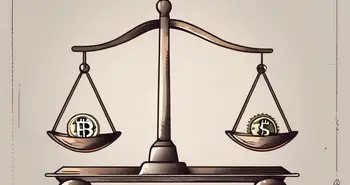Obscure Currencies in Trading

I have been fascinated by the world of trading for many years now. As an expert in the field, I have witnessed the rise and fall of various currencies, both mainstream and obscure. In this article, I want to shine a light on the intriguing realm of obscure currencies and explore their importance in trading. So, let's dive in and discover the hidden potentials of these lesser-known currencies.
Understanding Obscure Currencies
Obscure currencies, also known as exotic currencies, are those that are not widely traded or recognized on the global market. While major currencies like the US dollar, euro, and Japanese yen dominate the trading landscape, obscure currencies represent smaller economies and regions.
Why should we pay attention to these lesser-known currencies, you may wonder? Well, obscure currencies can offer unique opportunities for traders. Their lower trading volumes and less predictable movements can lead to potentially higher profits for those who understand how to navigate through their intricacies.
Definition and Importance of Obscure Currencies
Obscure currencies are currencies of countries or regions that have limited economic visibility or are not widely recognized in global trade. These currencies are often associated with emerging economies or nations with niche industries. While they may not carry the same weight as major currencies, they deserve attention due to their potential for diversification and risk management.
The Role of Obscure Currencies in the Global Economy
Although obscure currencies might seem insignificant in the grand scheme of the global economy, they play a vital role in specific industries and regions. For instance, a country heavily dependent on tourism might have an obscure currency that fluctuates based on visitor arrivals. Moreover, obscure currencies can act as indicators of geopolitical stability and economic trends in their respective regions.
The Landscape of Obscure Currency Trading
Now that we grasp the importance of obscure currencies, let's explore the landscape of trading them. To successfully navigate this domain, it's crucial to be aware of the key players and the currencies that are most actively traded.
Key Players in Obscure Currency Trading
Various entities participate in obscure currency trading, such as hedge funds, multinational corporations, and individual traders specializing in specific markets. These players bring diverse strategies and perspectives, contributing to the overall liquidity and volatility of the market.
My personal advice is to learn from the experts. Engage in forums and communities where experienced traders discuss their strategies and insights. Surround yourself with knowledgeable individuals who can guide you through the complexities of trading obscure currencies.
The Most Traded Obscure Currencies
While the list of obscure currencies is extensive, some currencies tend to attract more attention than others in the trading world. Currencies like the Mexican peso, Brazilian real, South African rand, and Turkish lira are frequently traded due to their economic significance and levels of volatility.
Yet, remember that trading obscure currencies requires in-depth research and careful risk management. It is advisable to focus on currencies that align with your trading goals and risk appetite.
Risks and Rewards of Trading Obscure Currencies
Every trading endeavor carries inherent risks, and trading obscure currencies is no exception. However, the potential rewards can be enticing, making it an appealing venture for traders seeking new opportunities.
Potential Profits from Obscure Currencies
Obscure currencies often carry higher interest rates compared to major currencies. This difference in interest rates can create opportunities for carry trading, where traders borrow in a lower interest-rate currency and invest in a higher interest-rate currency.
My personal story involves a trade I made on the Indonesian rupiah, an obscure currency that had caught my attention due to its relatively high-interest rates at the time. By carefully watching economic indicators and managing my risk, I was able to profit significantly from this trade.
The Risks Involved in Obscure Currency Trading
Trading obscure currencies can be more volatile than trading major currencies, as they are more sensitive to economic and political developments within specific regions. Additionally, their lower liquidity can result in wider bid-ask spreads, making it challenging to execute trades at desirable prices.
It's crucial to remain vigilant and stay updated on global events and economic indicators that can impact the value of obscure currencies. Risk management practices, such as setting stop-loss orders and diversifying your portfolio, are essential when dealing with the inherent risks involved in trading these currencies.
Strategies for Trading Obscure Currencies
Now that we understand the risks and rewards associated with trading obscure currencies, let's explore some strategies that can help traders navigate this field effectively.
Fundamental Analysis for Obscure Currencies
Fundamental analysis involves studying economic indicators, such as GDP growth, interest rates, and inflation, to assess the intrinsic value of a currency. For obscure currencies, it's important to consider regional economic factors, political stability, and industry-specific developments that may impact currency values.
By staying informed and analyzing these factors thoroughly, traders can make more informed decisions based on the underlying fundamentals of a currency.
Technical Analysis for Obscure Currencies
Technical analysis involves studying historical price patterns and using various technical indicators to identify potential entry and exit points. While technical analysis can be applied to any currency, it becomes particularly useful when trading obscure currencies due to their unique price movements.
I remember using technical analysis to spot a breakout pattern on the Hungarian forint. By carefully analyzing the charts and combining it with my fundamental analysis, I was able to enter a profitable trade.
Regulatory Aspects of Obscure Currency Trading
When trading any currency, including obscure currencies, it is essential to consider the regulatory landscape to ensure compliance and protect your investments.
Legal Considerations in Obscure Currency Trading
Before engaging in obscure currency trading, it's imperative to understand the legal framework governing such activities. Familiarize yourself with the regulatory requirements, including licensing, reporting obligations, and taxation in your jurisdiction and the jurisdictions where you plan to trade.
Consulting with a legal expert familiar with currency trading regulations can provide valuable insights and guidance in navigating this complex landscape.
Regulatory Bodies Overseeing Obscure Currency Trading
Various regulatory bodies monitor and regulate currency trading to maintain fair and transparent markets. It's essential to be aware of these organizations and their guidelines to ensure compliance and protect your investments.
For example, the Commodity Futures Trading Commission (CFTC) in the United States oversees currency trading and sets regulations to protect traders and maintain market integrity.
FAQ – Exploring the World of Obscure Currencies in Trading
Let's revisit some of the main points covered in this article:
What are obscure currencies?
Obscure currencies are lesser-known currencies that belong to countries or regions with limited economic visibility or recognition in global trade.
Why should I trade obscure currencies?
Trading obscure currencies can offer unique opportunities for diversification and potentially higher profits due to their lower trading volumes and unpredictable movements.
What are the risks involved in trading obscure currencies?
Trading obscure currencies carries risks such as higher volatility, lower liquidity, and wider bid-ask spreads. Staying well-informed, practicing risk management, and conducting thorough research are key to mitigating these risks.
What strategies can I use for trading obscure currencies?
When trading obscure currencies, fundamental analysis and technical analysis are valuable strategies. Fundamental analysis involves studying economic indicators and industry-specific developments, while technical analysis focuses on historical price patterns and technical indicators.
Are there any legal considerations in obscure currency trading?
Yes, it is essential to understand and comply with the legal and regulatory requirements governing obscure currency trading in your jurisdiction and the jurisdictions where you plan to trade.
Which regulatory bodies oversee obscure currency trading?
Regulatory bodies like the CFTC in the United States oversee currency trading and set guidelines to ensure fair and transparent markets.
So, there you have it, a comprehensive exploration of the world of obscure currencies in trading. By understanding the intricacies and potential opportunities offered by these currencies, you can expand your trading horizons and embrace new trading possibilities. Remember, thorough research, risk management, and a sound trading strategy are key to success in this fascinating realm. Happy trading!
Ready to explore the world of obscure currencies with a trading platform that's as innovative as your investment strategy? Look no further than Morpher, the blockchain-based trading platform that offers zero fees, infinite liquidity, and a unique trading experience across a multitude of asset classes. Whether you're interested in fractional investing, short selling without interest fees, or leveraging up to 10x, Morpher empowers you to trade on your terms. With the added security of the Morpher Wallet, you're in full control of your funds. Embrace the future of trading and Sign Up and Get Your Free Sign Up Bonus today to start capitalizing on the potential of obscure currencies and beyond. Happy trading!

Disclaimer: All investments involve risk, and the past performance of a security, industry, sector, market, financial product, trading strategy, or individual’s trading does not guarantee future results or returns. Investors are fully responsible for any investment decisions they make. Such decisions should be based solely on an evaluation of their financial circumstances, investment objectives, risk tolerance, and liquidity needs. This post does not constitute investment advice.

Painless trading for everyone
Hundreds of markets all in one place - Apple, Bitcoin, Gold, Watches, NFTs, Sneakers and so much more.

Painless trading for everyone
Hundreds of markets all in one place - Apple, Bitcoin, Gold, Watches, NFTs, Sneakers and so much more.









